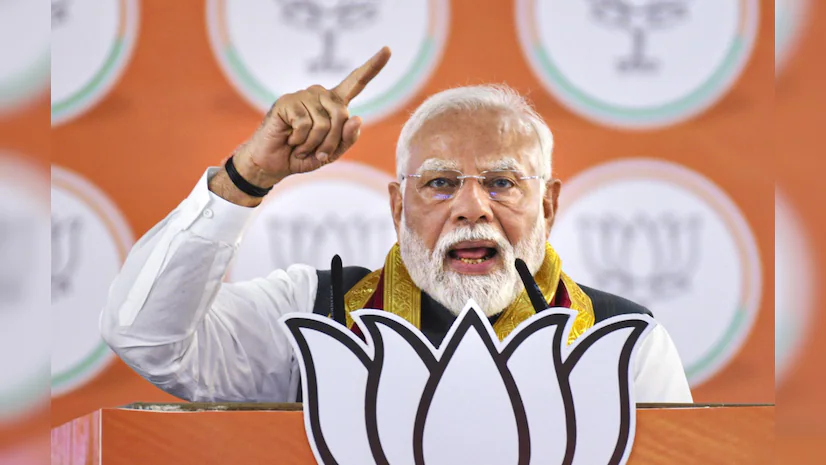
PM Modi outlines five key priorities for disaster-resilient infrastructure, focusing on early-warning systems, skilled workforce, innovative financing, and global cooperation (photo credit-PTI)
In an era where climate change and natural disasters pose increasing threats to global infrastructure, Prime Minister Narendra Modi has outlined five key priorities to build disaster-resilient infrastructure. Speaking at the International Conference on Disaster Resilient Infrastructure (ICDRI) 2025, Modi emphasized the need for early-warning systems, skilled workforce development, innovative financing, global digital repositories, and special attention to vulnerable regions. These priorities aim to strengthen global resilience and ensure that nations can effectively mitigate disaster risks.
1. Strengthening Early-Warning Systems
One of the most critical aspects of disaster resilience is early-warning systems. PM Modi highlighted India’s tsunami-warning system, which benefits 29 countries. He stressed the importance of real-time data sharing, advanced forecasting models, and last-mile communication to ensure timely evacuations and disaster preparedness.
India’s early-warning infrastructure has already proven effective in mitigating the impact of Cyclone Remal, Hurricane Beryl, and Typhoon Yagi. Strengthening these systems globally will help nations reduce casualties and economic losses.
2. Developing a Skilled Workforce
PM Modi emphasized the need to integrate disaster resilience training into higher education. By incorporating courses, modules, and skill development programs, nations can equip professionals with the expertise to handle disaster management effectively.
India has already taken steps to train emergency responders, engineers, and urban planners in disaster resilience. Expanding these efforts globally will ensure that future infrastructure projects are designed with disaster mitigation strategies in mind.
3. Innovative Financing for Resilient Infrastructure
Building disaster-resilient infrastructure requires substantial financial investment. PM Modi called for innovative financing models to support developing nations in strengthening their infrastructure. He proposed public-private partnerships, climate bonds, and international funding mechanisms to ensure that resources are available for disaster preparedness.
Countries facing frequent disasters, such as Small Island Developing States (SIDS), require special financial assistance to build resilient homes, hospitals, and energy systems. Modi’s proposal aims to bridge the financial gap and ensure that vulnerable regions receive adequate support.
4. Establishing a Global Digital Repository
PM Modi stressed the importance of documenting best practices and lessons learned from past disasters. He proposed the creation of a global digital repository where nations can share strategies, case studies, and technological advancements in disaster resilience.
This repository will serve as a knowledge hub for policymakers, researchers, and engineers, enabling them to implement proven disaster mitigation techniques. By fostering global collaboration, nations can accelerate their preparedness efforts and reduce infrastructure vulnerabilities.
5. Special Attention to Vulnerable Regions
Recognizing the unique challenges faced by coastal regions and small island nations, PM Modi emphasized the need for targeted disaster resilience strategies. He referred to SIDS as Large Ocean Countries, highlighting their exposure to hurricanes, tsunamis, and rising sea levels.
India’s Coalition for Disaster Resilient Infrastructure (CDRI) is actively working with 25 Small Island Developing States to build resilient homes, schools, and water security systems. Modi’s call for global cooperation aims to ensure that these regions receive the necessary resources and expertise to withstand future disasters.
Conclusion on the five key priorities
PM Modi’s five priorities for disaster-resilient infrastructure provide a comprehensive roadmap for global safety. By strengthening early-warning systems, developing a skilled workforce, ensuring innovative financing, creating a global digital repository, and focusing on vulnerable regions, nations can build a resilient future
As climate change continues to intensify natural disasters, proactive measures are essential to protect lives and economies. Modi’s vision underscores the importance of international collaboration in disaster preparedness and infrastructure resilience.
Stay updated with the latest news on Rapido Updates. Keep yourself updated with The World, India News, Entertainment, Market, Gadgets, Sports, and many more.